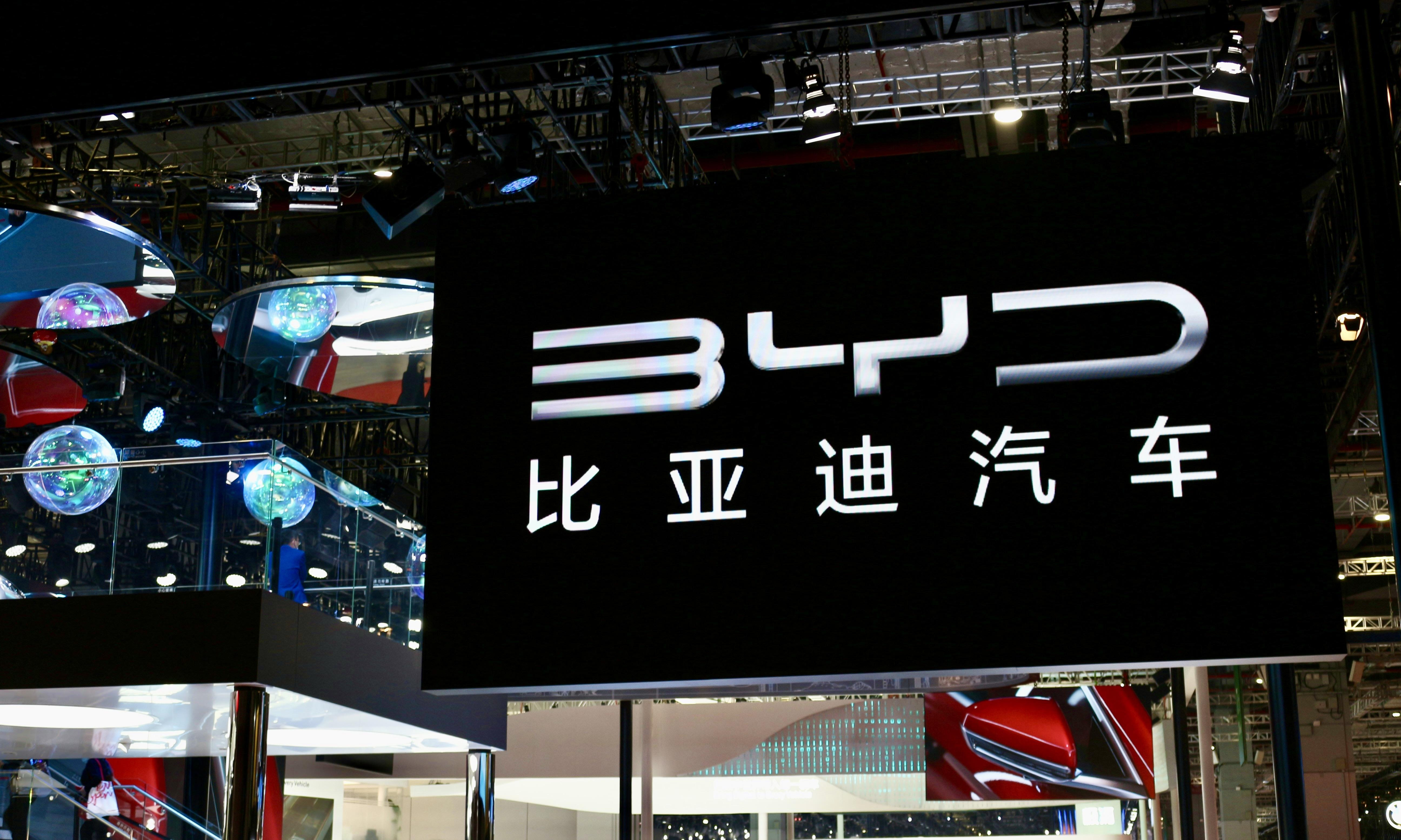BYD Auto Co. plans to enter the South Korean EV market with its $25,000 Seal EV, potentially disrupting Hyundai and Kia's lead.
BYD Targets South Korean EV Market
Per Yonhap News Agency, industry watchers forecasted on Tuesday that BYD Auto Co. of China would join the South Korean consumer electric vehicle (EV) market this year, increasing competition in the low-cost segment. This category has recently witnessed a slowdown in growth due to the so-called EV adoption chasm, and the industry is bracing for more disruption in this space.
Initiating its domestic release procedure, the Chinese EV producer BYD submitted a noise and emissions certification application for its midsized EV car Seal to the National Institute of Environmental Research under the South Korean Environment Ministry on June 5.
The procedure typically takes two or three months to complete, during which variables like battery life on a single charge are examined. Separate from the review for electric vehicle subsidies, the Korea Environment Corp. conducts performance evaluations.
Affordable Seal EV to Rival Tesla and Local Brands
Electrek shares that BYD intends to introduce the Seal EV in Korea for less than $25,000, competing with Tesla's Model 3. After its 2022 introduction in China, the all-electric vehicle will enter additional regions such as Europe, Australia, and Brazil.
At 4,800 mm in length, 1,875 mm in width, and 1,460 mm in height, BYD's Seal is a sporty electric sedan. Its dimensions are 4,694 mm in length, 1,849 mm in width, and 1,442 mm in height, making it comparable to the Tesla Model 3 in size and performance.
In March 2024, China's Seal EV Honor Edition electric vehicle cost $25,000 (179,800) and has a CLTC range of 342 mi (550 km). With a WLTP range of up to 354 miles (570 km), the Seal EV may be purchased in Europe for approximately $48,500 (45,000 euros).
Market Dynamics: Hyundai and Kia vs. BYD
Six models, including the Seal, Dolphin, and Atto, have already been trademarked in the domestic market by BYD.
Hyundai Motor and Kia are the current market leaders in South Korea's electric vehicle industry. Still, BYD might shake things up if it successfully introduces its passenger EV cars at competitive prices.
When Tesla's Model Y electric vehicles were released in China, South Korean automakers' domestic market share fell by 3.5 percentage points to 76.6% last year.
Photo: P. L./Unsplash



 Baidu Approves $5 Billion Share Buyback and Plans First-Ever Dividend in 2026
Baidu Approves $5 Billion Share Buyback and Plans First-Ever Dividend in 2026  SpaceX Pushes for Early Stock Index Inclusion Ahead of Potential Record-Breaking IPO
SpaceX Pushes for Early Stock Index Inclusion Ahead of Potential Record-Breaking IPO  Amazon Stock Rebounds After Earnings as $200B Capex Plan Sparks AI Spending Debate
Amazon Stock Rebounds After Earnings as $200B Capex Plan Sparks AI Spending Debate  SoftBank Shares Slide After Arm Earnings Miss Fuels Tech Stock Sell-Off
SoftBank Shares Slide After Arm Earnings Miss Fuels Tech Stock Sell-Off  Sony Q3 Profit Jumps on Gaming and Image Sensors, Full-Year Outlook Raised
Sony Q3 Profit Jumps on Gaming and Image Sensors, Full-Year Outlook Raised  Kroger Set to Name Former Walmart Executive Greg Foran as Next CEO
Kroger Set to Name Former Walmart Executive Greg Foran as Next CEO  Nvidia CEO Jensen Huang Says AI Investment Boom Is Just Beginning as NVDA Shares Surge
Nvidia CEO Jensen Huang Says AI Investment Boom Is Just Beginning as NVDA Shares Surge  Samsung Electronics Shares Jump on HBM4 Mass Production Report
Samsung Electronics Shares Jump on HBM4 Mass Production Report  Oracle Plans $45–$50 Billion Funding Push in 2026 to Expand Cloud and AI Infrastructure
Oracle Plans $45–$50 Billion Funding Push in 2026 to Expand Cloud and AI Infrastructure  SpaceX Prioritizes Moon Mission Before Mars as Starship Development Accelerates
SpaceX Prioritizes Moon Mission Before Mars as Starship Development Accelerates  TSMC Eyes 3nm Chip Production in Japan with $17 Billion Kumamoto Investment
TSMC Eyes 3nm Chip Production in Japan with $17 Billion Kumamoto Investment  Elon Musk’s SpaceX Acquires xAI in Historic Deal Uniting Space and Artificial Intelligence
Elon Musk’s SpaceX Acquires xAI in Historic Deal Uniting Space and Artificial Intelligence  Google Cloud and Liberty Global Forge Strategic AI Partnership to Transform European Telecom Services
Google Cloud and Liberty Global Forge Strategic AI Partnership to Transform European Telecom Services  Nvidia, ByteDance, and the U.S.-China AI Chip Standoff Over H200 Exports
Nvidia, ByteDance, and the U.S.-China AI Chip Standoff Over H200 Exports  OpenAI Expands Enterprise AI Strategy With Major Hiring Push Ahead of New Business Offering
OpenAI Expands Enterprise AI Strategy With Major Hiring Push Ahead of New Business Offering  Taiwan Says Moving 40% of Semiconductor Production to the U.S. Is Impossible
Taiwan Says Moving 40% of Semiconductor Production to the U.S. Is Impossible 































